Fiscal Year 2024-25
Highlights
Dynamic Housing Dashboard
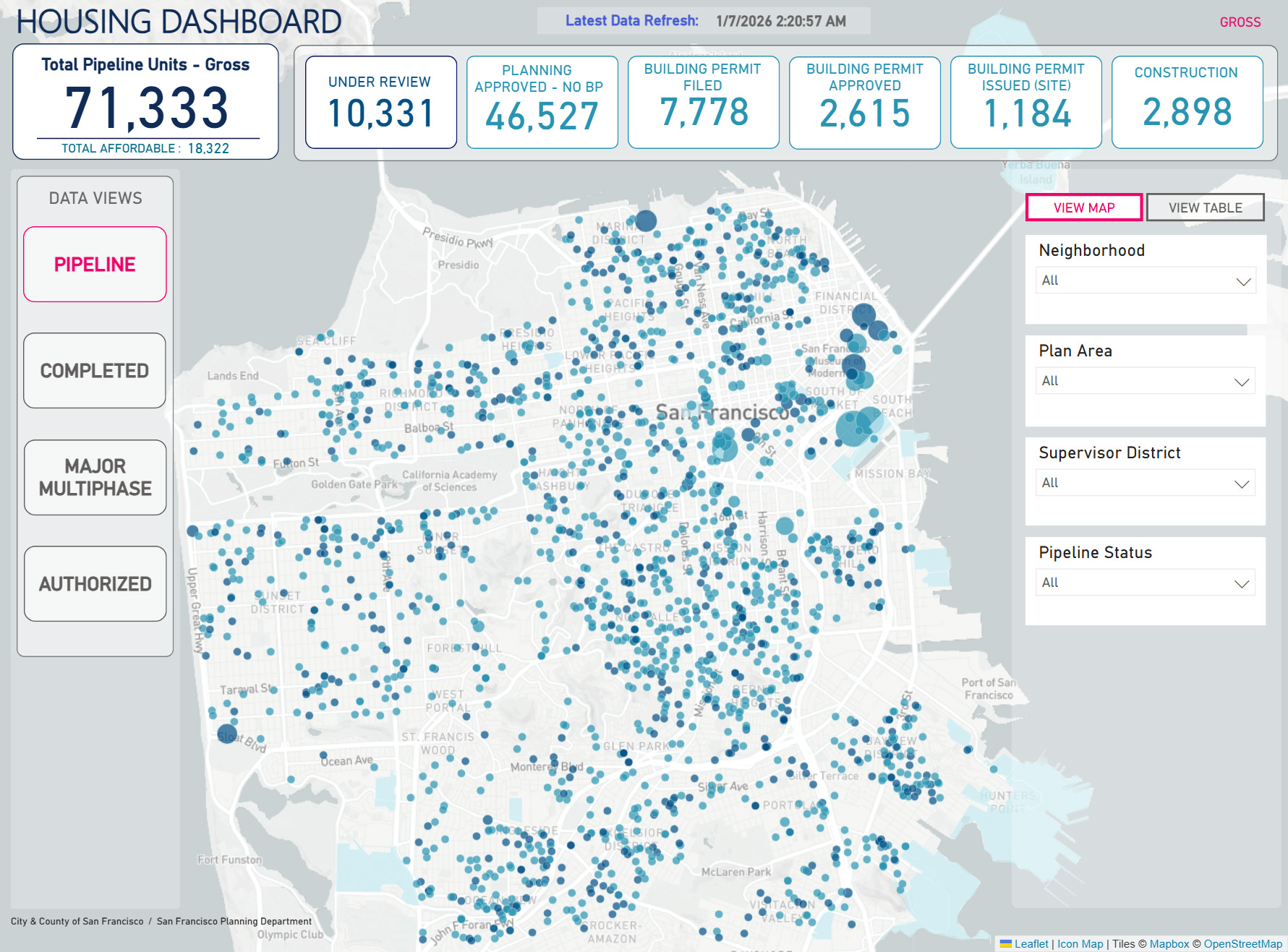
In January 2025, The Department launched a web-based Housing Dashboard, providing a comprehensive view of housing production across the City. The Dashboard showcases completed homes since 2005 and tracks active residential projects currently in the development pipeline. Users can easily explore the data by geography (e.g. neighborhoods, Plan Areas, or Supervisorial Districts) as well as by affordability level, project type, or timeframe. The Dashboard features both map-based views and chart/table views for flexible analysis and visualization.
The Housing Dashboard builds on a multiyear effort to develop a robust data infrastructure for housing reporting, including the creation of a centralized Housing Data System, which automates the integration of data from multiple sources, including the Planning Department's Permit and Project Tracking System and the Department of Building Inspection's Permit Tracking System.
View the Housing DashboardObjective Design Standards
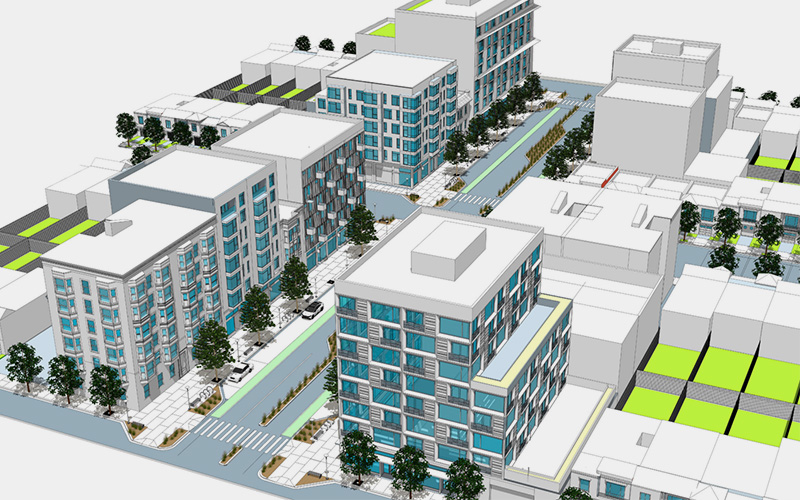
Standards for Design
In November 2024, the Planning Commission adopted the San Francisco Design Standards, which establish objective design criteria for projects constructing new housing. Especially important given the increasing number of ministerial projects facilitated through State legislation, the Standards assure that all new buildings are well designed and contribute to vibrant urban places and complement existing Code requirements for building form and massing.
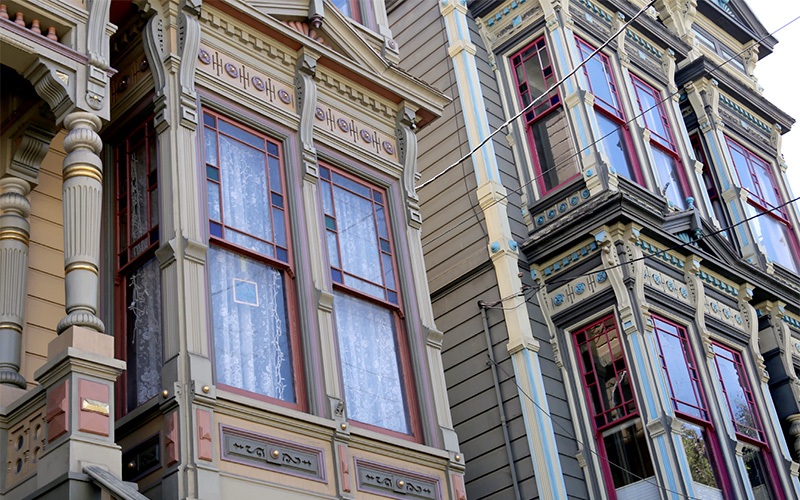
Standards for Preservation
In March 2025, the Planning Commission and Historic Preservation Commission adopted the Preservation Design Standards, which are a companion to the San Francisco Design Standards. The Preservation Standards establish design criteria for projects constructing housing within the City’s historic buildings. A fusion of preservation rules and design criteria, the Preservation Standards establish a predictable and transparent roadmap for building new housing.
Customer-Friendly Window Replacements
In concert with new legislation in May 2025, the Department dramatically simplified window replacements. Long a bureaucratic stumbling block for homeowners, new processes reflected in the Department’s “Standards and Recommendations for Window Replacement” bring transparency, speed, and cost-savings city-wide. Moving forward, firm evaluation criteria apply to all properties in the City while allowing for a wider range of window products on non-historic buildings.
Learn more about Window Replacement Projects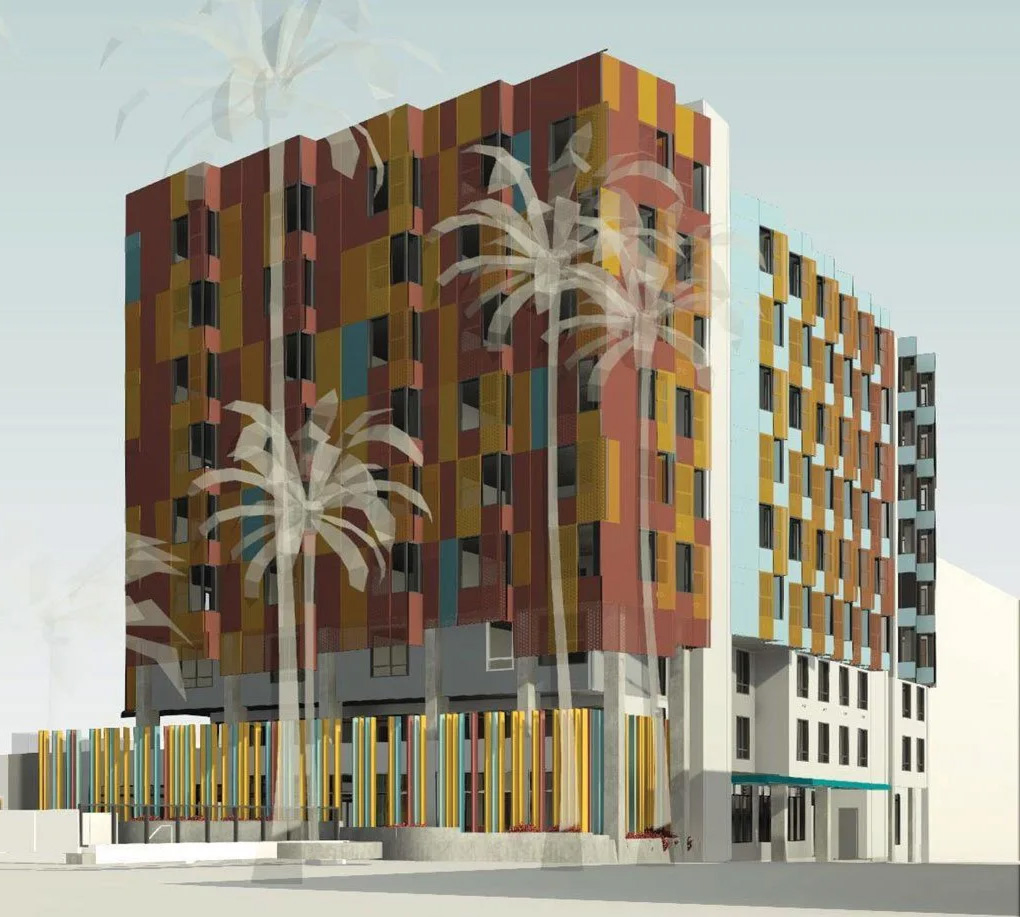
From “Monster” to “Marvel”
In May 2025, the Department approved a nine-story, 135-unit permanently affordable supportive housing project on one of the most contentious development sites in memory. Dubbed by supporters as the “Marvel in the Mission” and located at the corner of Mission and 16th Streets, the project will add to San Francisco’s critically-needed supply of permanently affordable and supportive housing. Following donation of the site to the City as a part of a different project’s affordable housing requirement, it will be built instead of a controversial, mainly market-rate project labeled by opponents as the “Monster in the Mission.” With the help of new State laws, the Department’s review of the project took less than two months.
--Mark-- via Flickr (CC BY-NC-SA 2.0);
Brianmcmillen via Wikimedia Commons (CC BY-SA 4.0);
Gail Williams via Flickr (CC BY-ND 2.0);
© Ilka Hartmann;
David Ohmer Wikimedia Commons (CC BY 2.0)
SF Survey
Over the past year, the Department’s Citywide Cultural Resources Survey - better known as “SF Survey” - has made significant progress evaluating buildings throughout the City. The certainty created by SF Survey through the identification of both historic buildings and non-historic buildings brings significantly enhanced transparency and predictability in how our built environment might change in the years to come. During this reporting period, SF Survey completed all fieldwork for the City’s Neighborhood Commercial Districts. In October 2024, the Historic Preservation Commission adopted survey findings for the Japantown neighborhood and in February 2025 it did so for the Richmond and Sunset Districts.
Learn more about SF SurveyMAP2030
In December 2024, the Planning Commission endorsed the Mission Action Plan 2030. MAP2030 addresses continued challenges of displacement and homelessness in the Mission District and aims to support economic and cultural vitality. Previously, the Commission had endorsed an earlier version of the plan (MAP2020), which began in 2014 as a collaborative effort between community leaders and City government to protect residents from displacement and to support local organizations and businesses. More than a decade later, despite ongoing economic pressures, that partnership has produced and protected affordable housing, preserved cultural activities and spaces, and helped retain and expand community-serving businesses.
MAP2030 strategies build on MAP2020 and include:
-
Enhancing support to stabilize space for small businesses and community-based organizations
-
Improving street conditions by activating the 16th and 24th Street plazas and by power washing key sections of the Mission corridor
-
Enhancing access to cultural and ceremonial spaces that preserve the rich practices of Indigenous communities
-
Securing funding for community-identified permanent affordable housing for vulnerable households and individuals
-
Continuing our work with communities to guide planning and collaborate on project implementation

Family Zoning Plan
Until now, the City's zoning rules limit the types of housing that can be constructed, constrain the geography where it can be built, and prevent us from creating enough to meet people’s needs. State law requires that San Francisco adopt a compliant rezoning plan by January 31, 2026.
With work having begun in 2020, the Family Zoning Plan is a once-in-a-generation opportunity to expand housing affordability and availability by allowing for increased density throughout the City, especially along transit and commercial corridors, in order to meet San Francisco’s Regional Housing Needs Allocation requirements set by the State of California.
A primary deliverable of the unanimously-adopted 2022 Housing Element, the Family Zoning Plan allows for more housing options in neighborhoods with greater access to economic opportunities and services that can support growth, such as public transit, parks, retail, and community facilities.
Over the course of this reporting period, the Department continued extensive engagement with stakeholders and decision-makers. We presented updates to the Youth Commission, the Board of Supervisors Land Use and Transportation Committee, and to the Planning Commission - four times. We also presented at more than 70 community conversations in a variety of settings, including town halls, webinars, panel discussions, and Q&A sessions. Draft Zoning Map and Planning Code amendments were released in April 2025 and were followed by a formal legislative introduction by Mayor Lurie in June.
Four key facts about the Family Zoning Plan:
-
Capacity for over 36,000 homes on the north and west sides will be created to make room for households of all types and income levels.
-
Building heights will remain mostly unchanged at 40 feet – or 4 stories. The plan allows modest increases of two to four more stories near shopping, transit, and on major streets, with high rises permitted only in limited areas.
-
San Francisco will stay in the driver’s seat by meeting State housing targets while preserving local zoning and design controls and securing access to State funding for housing and transportation. We will be able to preserve – and expand on - what makes the City unique.
-
Tenant protections will be bolstered by tightening rules on residential demolitions and directing development to underused and vacant sites.
Proposed Zoning Map: Local Program Heights
(December 2025)
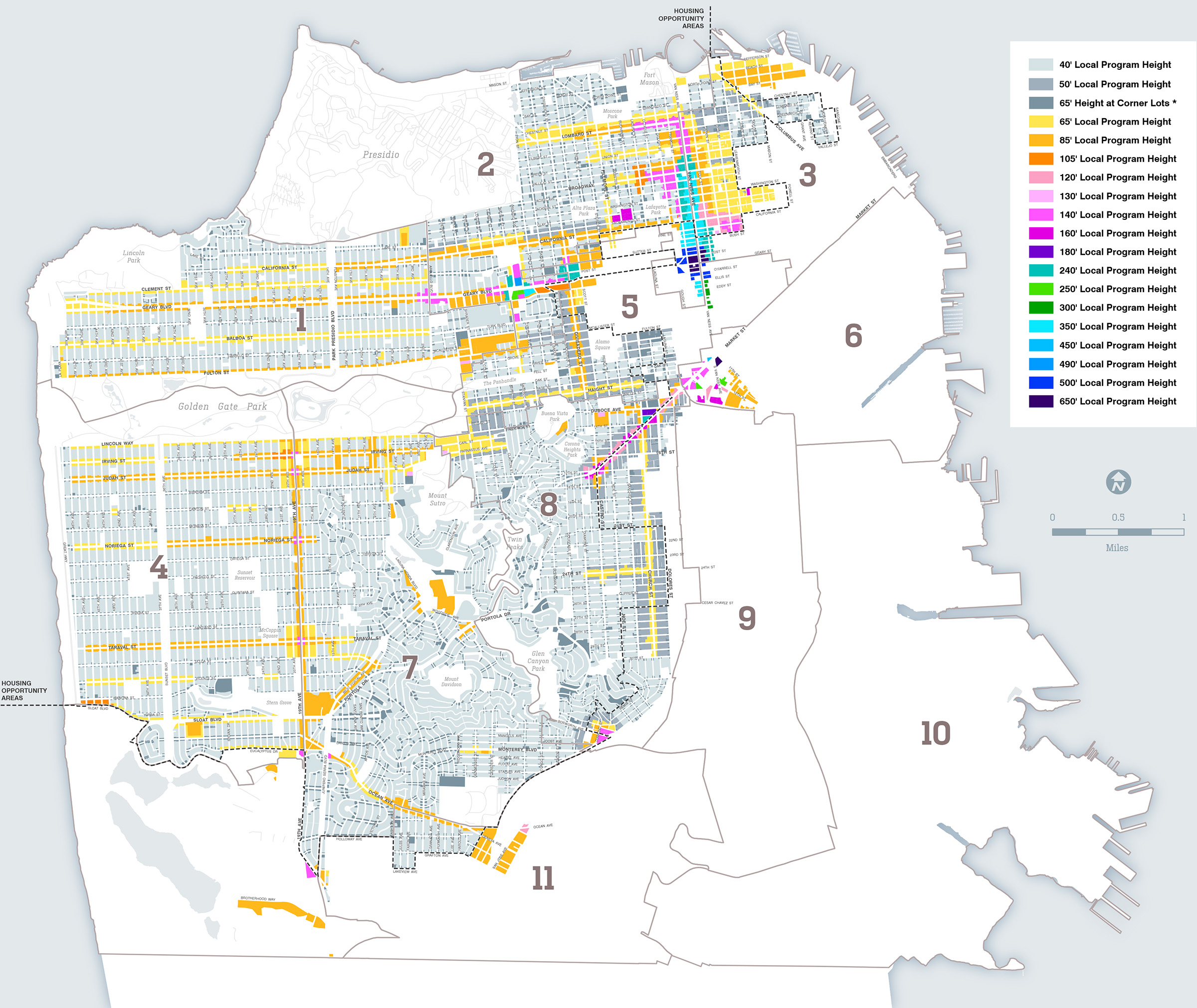

PermitSF
Launched by Mayor Lurie in February 2025, PermitSF is aimed at modernizing and streamlining the City’s permitting process. Through legislative and administrative improvements implemented beginning in Spring 2025, the Planning Department is playing a central role in advancing this multi-agency effort to deliver a faster, more transparent, and customer-focused permitting experience.

Planning Code Reform
Amendments conceived of and advanced by the Department have aligned the Code with City policy by reducing regulatory barriers, supporting economic vitality, and codifying best-practices, including enhancements to rules for temporary uses, signage, awnings, security gates, storefront transparency, backyard decks and stairs, and Downtown ground floor uses.

Administrative Improvements
Internal process improvements have reduced wait times and improved our customers' experiences. New performance metrics and “shot clocks” ensure timely review of permit applications, setting targets for 21-day completeness checks, 30-day plan reviews, and 14-day resubmission reviews. Additionally, over-the-counter application reviews have been expanded so that more projects receive same-day permits.